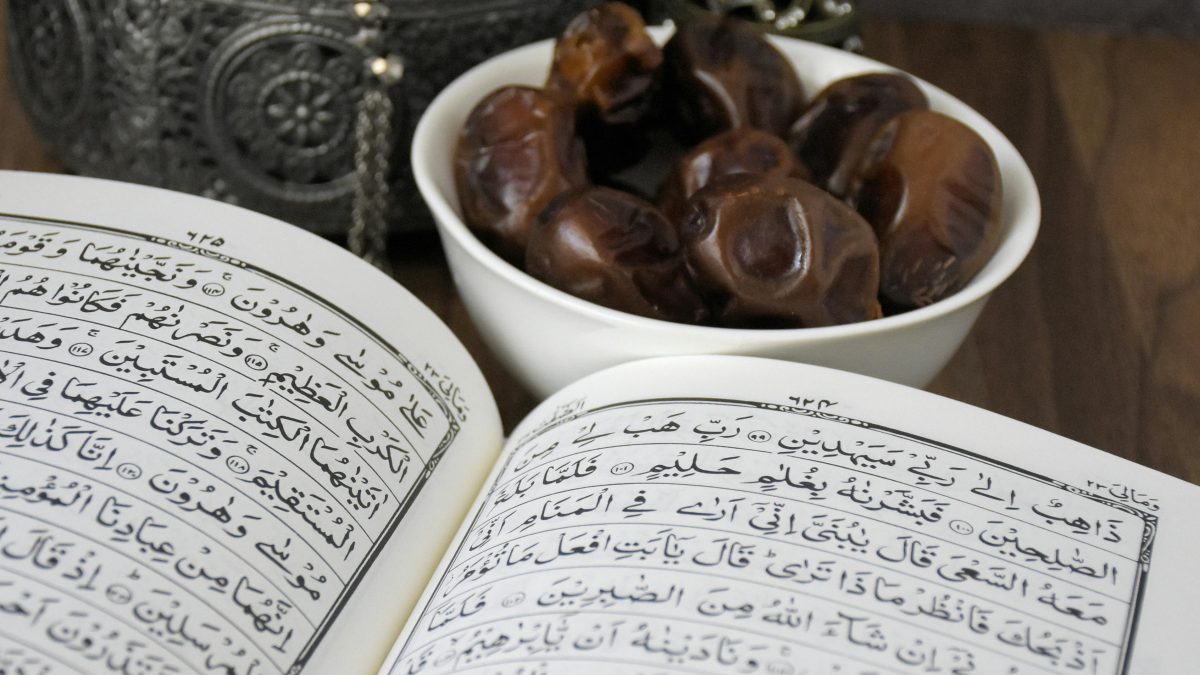
The Great Spiritual Reset
April 4, 2022
Family Traditions That Strengthen Bonds and Iman
December 19, 2025‘Wide-eyed, Humayd throws off his blanket, slips his feet into the slippers lying next to the bed, runs towards the stairs and swings himself around the banister. As he heads downstairs, he knows this breakfast is different. The sun is not yet up, but he will be eating his breakfast, and then not eating or drinking until sunset. Humayd sits at the spread of food, looking at his mother with a big smile and says; ‘Assalamu Alaykum!’
The Spirt of Ramadan
What better place to understand the importance of the blessed month than reconciling with the life of our true role model, the beloved Messenger Muhammad ﷺ? An increase in the number of fasts observed, and an increase in nafl acts, shows the preparation made by Him ﷺ. Our memories of Ramadan will revolve around great congregational experiences, like that of Suhoor, Iftar and Taraweeh. All these actions remind us of our love for our creator, His beloved ﷺ, and recognising the bond that exists between believers who all live with the same goal, objective, and ethos. This spirit needs to be shared and lit within the hearts of our dear young children. The way we behave and react to the commandments of Allah duringthis month will reflect on how our young ones hold Ramadan within their hearts.
Maximising Ramadan
To develop a sense of awe around this blessed month for our children and remind ourselves of its greatness, we need to take practical steps. Firstly, allow for the entire month to be an enjoyable experience, without letting it become burdensome. This will require you, as a parent/ carer, to be resilient, patient, and mindful of the questions, queries, and whines of your young ones. Children love to feed their curiosity by asking the age-old question; why?
To address these questions, which can often feel overwhelming, is to begin with educating yourself by seeking knowledge and understanding the significance of Ramadan. This involves delving into Islamic literature, attending lectures, and engaging with knowledgeable individuals within the community. By equipping yourself with a deeper understanding of the spiritual, cultural, and communal aspects of Ramadan, you can effectively convey its importance to your children in a meaningful way.
Furthermore, maximising your child’s Ramadan experience involves creating an environment that fosters enjoyment while simultaneously emphasising the significance of the month for Muslims. Encourage your child to actively participate in fasting, Taraweeh prayers, Suhoor, Iftar gatherings, and acts of charity. By involving them in these practices, you instil a sense of belonging to the wider Muslim community and reinforce the values of submission to Allah and compassion towards others.
Moreover, Ramadan can serve as a transformative period for both children and adults alike, offering an opportunity for personal growth and the development of new habits. Encourage your child to connect with the Quran through regular recitation and reflection, engage in additional Salah, and increase their remembrance of Allah through Dhikr. Create a positive atmosphere where the family competes in performing good deeds, such as tracking the amount of Quran recited or the time spent making Duas.
By implementing these strategies, you not only maximise your child’s Ramadan experience but also nurture a deeper appreciation and understanding of the significance of the month within their hearts. Ramadan becomes more than just a time of abstaining from food and drink; it becomes a period of spiritual rejuvenation, communal unity, and personal development for the entire family. Together, let us embark on this journey of growth and enlightenment, guided by the teachings of Islam and the spirit of Ramadan.
Share the importance of:
Fasting
- Fasting during Ramadan teaches self-discipline and self-control.
- It allows Muslims to empathise with the less fortunate by experiencing hunger and thirst.
- Fasting purifies the soul and strengthens one’s connection with Allah.
- It serves as a means of seeking forgiveness and spiritual renewal.
Taraweeh
- Taraweeh prayers offer an opportunity to recite and reflect upon the Quran.
- The congregation of Taraweeh fosters a sense of community and unity among Muslims.
- Taraweeh prayers provide spiritual rejuvenation and guidance throughout Ramadan.
- It allows Muslims to seek Allah’s blessings and forgiveness in the sacred nights of Ramadan.
Suhur
- Suhur is a blessed meal before the fast begins at dawn, providing nourishment and energy
for the day ahead. - It is a Sunnah of the Prophet Muhammad (peace be upon him) to partake in Suhur.
- Suhur strengthens the body for the physical rigors of fasting and enhances spiritual awareness.
- It offers a moment of quiet reflection and supplication before commencing the fast.
Iftar
- Iftar marks the breaking of the fast at sunset, promoting gratitude and thankfulness.
- Sharing Iftar with family and community members fosters bonds of kinship and brotherhood/sisterhood.
- It is a time for prayer, reflection, and seeking Allah’s mercy and forgiveness.
- Iftar provides an opportunity for charitable acts by hosting or contributing to communal meals for those in need.
Charity
- Charity during Ramadan, known as Sadaqah, purifies wealth and Zakat fulfils an obligation.
- It supports those who are less fortunate, ensuring they can also enjoy the blessings of Ramadan.
- Charity embodies the spirit of compassion, generosity, and social responsibility.
- Giving charity during Ramadan multiplies rewards and earns Allah’s pleasure.
Submission to Allah
- Ramadan is a time for increased devotion, prayer, and submission to Allah’s commandments.
- Fasting and performing acts of worship demonstrate obedience and reverence to Allah.
- Submitting to Allah’s will during Ramadan cultivates spiritual growth and inner peace.
- Ramadan serves as a reminder of our ultimate purpose in life: to worship and obey Allah.
Eid ul-Fitr
- Eid ul-Fitr celebrates the culmination of Ramadan and the achievement of spiritual goals.
- It is a day of joy, gratitude, and festivity, marking the end of fasting and the beginning of Shawwal.
- Eid ul-Fitr strengthens community bonds through prayers, feasting, and exchanging gifts.
- It is a time for forgiveness, reconciliation, and spreading happiness among family and friends.
In conclusion, as we immerse ourselves in the spirit of Ramadan, it becomes imperative to impart its significance to the next generation. Through fostering an environment of understanding, participation, and joy, we can ensure that our children not only embrace the practices but also internalise the profound lessons embedded within them. From the discipline of fasting to the communal unity of Taraweeh prayers, from the pre-dawn blessings of Suhur to the gratitude-filled gatherings of Iftar, each aspect of Ramadan offers an opportunity for growth and connection with our Creator. Moreover, as we engage in acts of charity and submission to Allah, we embody the true essence of this sacred month. Let us guide our children to appreciate the many blessings of Ramadan, paving the way for a future generation deeply rooted in faith, compassion, and devotion. And when Eid ul-Fitr dawns, may our hearts be filled with the joy of accomplishment, gratitude, and the bonds of love and friendship that unite us as an ummah.




